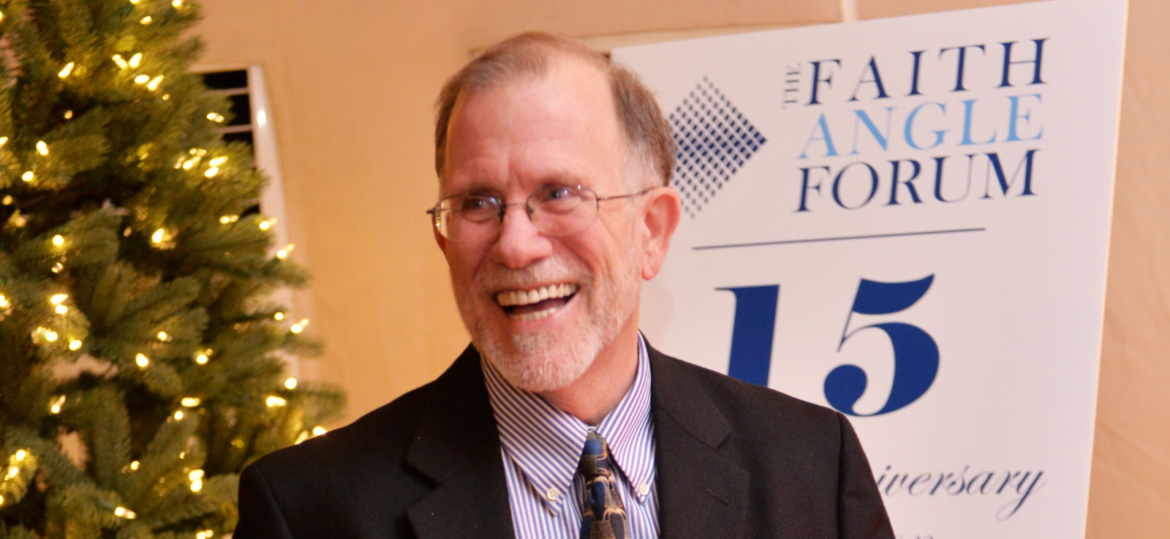
Michael Cromartie, who passed away earlier today, was one of the most life-affirming people I ever met.
He had a radiant personality, deep and winsome faith, endless energy, and tremendous generosity of spirit. He touched and brightened countless lives during his earthly pilgrimage, mine very much among them.
I first met Mike in 1985, when we started to work together at the Ethics and Public Policy Center. He has been a colleague for many of the intervening years and a close friend for all of them.
Mike was a wise counselor, a great raconteur, and a friend of just about everyone he met. He was also one of the most important figures in modern American Christianity. As director of the Faith Angle Forum, which he started in 1999, he worked to strengthen reporting and commentary on how religious believers, religious convictions, and religiously grounded moral arguments affect American politics and public life.
Through his work there, including as moderator and host of his two-and-a-half day retreats with scholars, theologians, and writers, Mike introduced a generation of journalists to the positive role faith can play in the life of our country. He enriched the public dialogue and helped shape American culture.
In addition to that, and in many respects more important than that, Mike enriched the lives of those who became part of his community with his kindness, his genuine interest in others, his light touch, and his joie de vivre. This was obvious based on the outpouring of affection as his health worsened. This was a man who left a deep imprint on people’s hearts and souls.
When I met with Mike soon after he learned his cancer had spread and was terminal, we talked about many things, including his own feelings about what lay ahead. He told me he had no fear of dying, and it was clear he did not.
He shared with me, and others, his intensified interest in knowing about heaven. He was captivated by two Jonathan Edwards sermons in particular, and part of him longed to go to his true home. Eternity became a little closer to him, a little more tangible.
But that sense of anticipation was mitigated by something else he said, with equal conviction, which is that he loved his life and his job, his friends, and, above all, his family—his remarkable wife, Jenny, who has been such a source of strength and comfort to him through their entire marriage, and their children Ethan, Eric, and Heather. He didn’t want to leave them, not yet. He had to try to balance two competing realities, two beautiful truths.
When I saw Mike for the last time, two nights before he passed away, we talked about politics, the NBA, books, family, and faith. The mood was remarkably upbeat, given the circumstances; but then again, it’s hard to imagine life ever being less than upbeat with Mike. For him, life was always lived in the broad, sunlit uplands. It was until the end.
Near the end of our final conversation, I told Mike about how many lives he had touched along the way, and I told him, “You’ll have crowns in heaven.” He looked at me and said, “Do you really think we’ll get crowns?” I told him I thought we might, and if so he’d get a lot of them. He looked at me and smiled. It strikes me now, in recounting this story, that in all my many conversations with Mike over the years, I don’t think I ever had one in which he didn’t smile or make me smile.
Now this good and gracious man, this bundle of joy and energy and kindness, this culture-shaping ambassador of Christ, has passed from this life to the next. He has gone home to be with the Lord he loved and served so well. We rejoice in that, even as we grieve this huge loss.
Peter Wehner is a senior fellow at the Ethics and Public Policy Center and a contributing opinion writer for The New York Times. He is the co-author, with Michael Gerson, of City of Man: Religion and Politics in a New Era.

